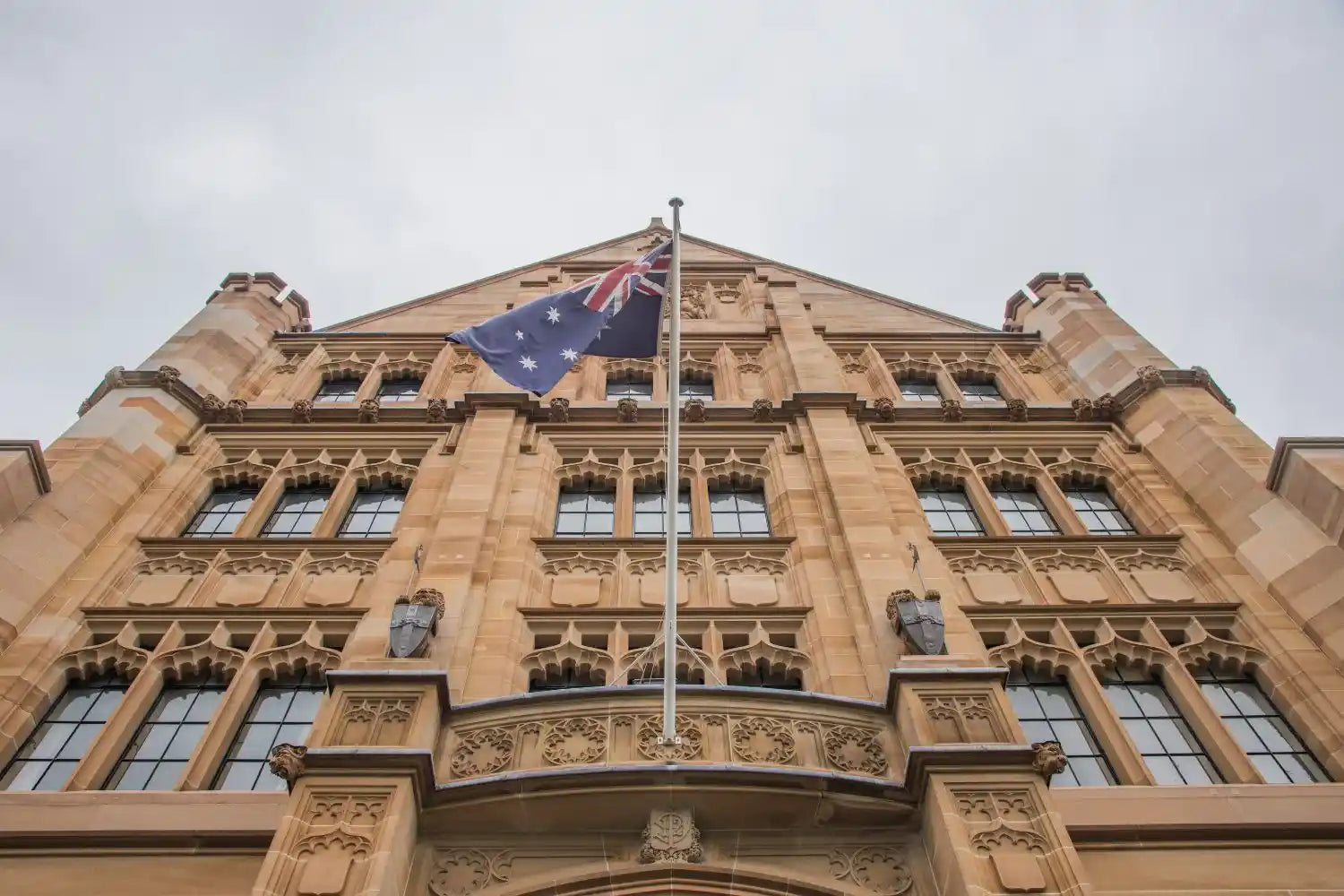The Australian education system is one of the most admired in the world, but what makes it so special? For international students, the answer goes far beyond classrooms and textbooks. From world-class universities and career-ready training to a unique high school structure that shapes future pathways, Australia blends academic excellence with real-world opportunities.
Before you decide whether this is the right destination for you, it’s worth uncovering how the system works, who runs it, what makes high school and university programs stand out, and how it all connects to visas, jobs, and life after graduation. By the end, you’ll see why Australia isn’t just another study-abroad option; it might be the launchpad you’ve been looking for.
Regulation, Operation, and Funding

Who really runs the Australian education system? At first glance, it may seem like a single, unified structure, but behind the scenes, it’s a shared responsibility. The federal government sets the broad framework, while each state and territory controls the specifics of what happens in classrooms.
Funding adds another twist. Public schools are largely supported by government money, while private and independent schools rely on tuition fees. For international students, this distinction is particularly important: your fees can vary significantly depending on whether you choose a government or private institution. And then there are scholarships often influenced by these very funding models, which can make studying in Australia more affordable than you might expect.
Compulsory Education and Schooling
According to the Australian education system, schooling is compulsory for children from about age 6 until 16 or 17, depending on the state or territory. This requirement ensures that every child receives a solid foundation before choosing a career or pursuing a higher education pathway. Here, the schooling system is divided into two main stages:
- Primary education (prep to Year 6 or 7)
- Secondary education (Years 7–12)
For international students, attendance is closely monitored because it is directly related to visa compliance. This means students must maintain regular participation in classes. By the senior secondary stage (Years 11–12), the focus shifts toward preparing for university entry or vocational training, making this period especially important for those planning to continue into the Australian higher education system.
Australian Curriculum and Student Performance
The Australian education system follows a nationally consistent curriculum designed to give students both academic knowledge and practical skills. Core subjects include English, Mathematics, Science, Humanities, Arts, Languages, and Technology, ensuring a balanced education.
At the senior secondary level (Years 11–12), students work toward state-based certificates such as the HSC in New South Wales or VCE in Victoria, which play a key role in university admissions. These qualifications are widely recognised and open direct pathways into the Australian higher education system.
Internationally, Australia’s schools perform well in assessments like PISA, reflecting strong teaching standards and student outcomes. For international students, this means studying in a system that is globally recognised and offers clear opportunities for further education and career advancement.
Higher Education in Australia

The Australian higher education system is globally recognised for its quality and wide range of study options. There are more than 40 universities across the country, including the prestigious Group of Eight (Go8), which consistently appear in world rankings. This strong performance is one reason the Australian education system ranking is among the highest worldwide.
International students can enter university through several routes: direct entry with equivalent qualifications, pathway programs after high school, or foundation studies. Popular fields include business, engineering, IT, medicine, and health sciences, which are valued both in Australia and internationally.
Tuition fees generally range between AUD 20,000 and 45,000 per year, but many universities offer scholarships to help reduce costs for international students. Beyond academics, studying in Australia also provides access to post-study work visas, allowing graduates to gain work experience and explore career opportunities.
Advantages of the Australian Education System
The Australian education system offers more than just degrees; it provides a complete study and lifestyle experience for international students. Some of the key advantages include:
- Global Recognition – Australian qualifications are highly respected worldwide, significantly enhancing career prospects.
- Flexible Pathways – Students can transition between academic and vocational streams according to their goals.
- Strong Support for International Students – Dedicated services, language programs, and cultural integration help students settle quickly.
- Research and Innovation – Universities are renowned for their cutting-edge research, particularly in the fields of science, medicine, and technology.
- Work Opportunities – Part-time work rights during study and post-study work visas after graduation make education more rewarding.
Higher Education System in Australia

Higher Education in Australia consists mainly of two verticals, one for all undergraduate programs and another for postgraduate programs.
Undergraduate Education in Australia
The Australian higher education system is structured to give students both flexibility and global recognition. Most undergraduate degrees are completed in three years, but professional programs, such as engineering, law, or medicine, can extend to four or five years.
International students have a wide range of study options. Popular choices include:
- Business and Management – strong focus on global trade and leadership skills.
- Engineering and IT – highly practical, with internships and industry projects.
- Health Sciences – nursing, pharmacy, and medical studies are in high demand.
- Arts and Humanities – flexible courses that encourage critical thinking and creativity.
Entry Requirements:
Entry is usually based on ATAR scores for local students, but international applicants can qualify through:
- Equivalent school-leaving qualifications (like A-Levels, IB, or CBSE).
- Foundation programs offered by universities to bridge academic or language gaps.
- Direct entry pathways via diploma programs linked to universities.
Universities such as the University of Melbourne, University of Sydney, ANU, and Monash University are consistently ranked among the top in the world, which is why the Australian education system ranking remains globally competitive. For international students, an undergraduate degree in Australia not only ensures academic excellence but also provides access to part-time work opportunities and a clear path toward postgraduate study or employment.
Postgraduate Education in Australia
The Australian higher education system offers a wide variety of postgraduate opportunities, making it a popular destination for international students seeking advanced qualifications.
- Master’s Programs – Most master’s degrees run for 1–2 years, depending on the field and whether they are coursework-based or research-focused. Coursework degrees (like an MBA or Master of IT) provide professional skills and industry connections, while research degrees (like a Master of Science) focus on original academic or scientific research.
- Doctoral Programs (PhD) – A PhD generally takes 3–4 years and is research-intensive, supervised by experienced faculty. Australia is globally recognised for its strong research output, especially in medicine, engineering, and environmental sciences.
Entry Requirements:
- A recognised bachelor’s degree (sometimes with honours or specific GPA requirements).
- English language proficiency demonstrated through IELTS, PTE, or TOEFL scores.
- In some cases, relevant work experience is required, particularly for professional courses such as an MBA.
Top Universities for Postgraduate Studies:
- Australian National University (ANU) – A university that is strong in research, policy, and science.
- University of Melbourne –The one that is globally ranked for business, law, and health sciences.
- University of Queensland –It is known for its engineering, environment, and biotechnology.
- UNSW Sydney and Monash University –This university is leading in business, IT, and innovation.
For international students, postgraduate study in Australia offers not only advanced knowledge but also access to scholarships, strong industry connections, and pathways to post-study work visas, which open doors to professional careers in Australia and beyond.
Career Opportunities After Study

One of the strongest advantages of the Australian education system for international students is the direct connection between study and future employment opportunities. Australia not only provides quality education but also ensures that students have opportunities to apply their knowledge in the real world.
- Part-Time Work While Studying – International students are allowed to work up to 48 hours per fortnight during study periods and full-time during semester breaks. This helps cover living costs and provides valuable work experience.
- Post-Study Work Visa (PSW) – After completing an eligible qualification, graduates can stay back in Australia for 2–4 years. The duration depends on the level of study (bachelor’s, master’s, or PhD) and, in some cases, on the city where the course was completed.
- High-Demand Careers – Australia faces skill shortages in areas such as healthcare, information technology, engineering, education, and business management. Graduates in these fields often find employment more quickly and may also become eligible for Permanent Residency (PR) pathways.
- Global Recognition – Degrees from Australian universities are highly respected internationally. This gives graduates the flexibility to either build careers in Australia or return home with globally competitive qualifications.
Conclusion
The Australian education system stands out as one of the most trusted and globally respected models of learning. From high school pathways that prepare students for future study, to world-class universities offering both undergraduate and postgraduate opportunities, it is designed to support academic growth, career success, and personal development. For international students, the combination of quality education, flexible learning options, part-time work rights, and post-study career opportunities makes Australia more than just a study destination; it becomes a gateway to building a successful global future.







